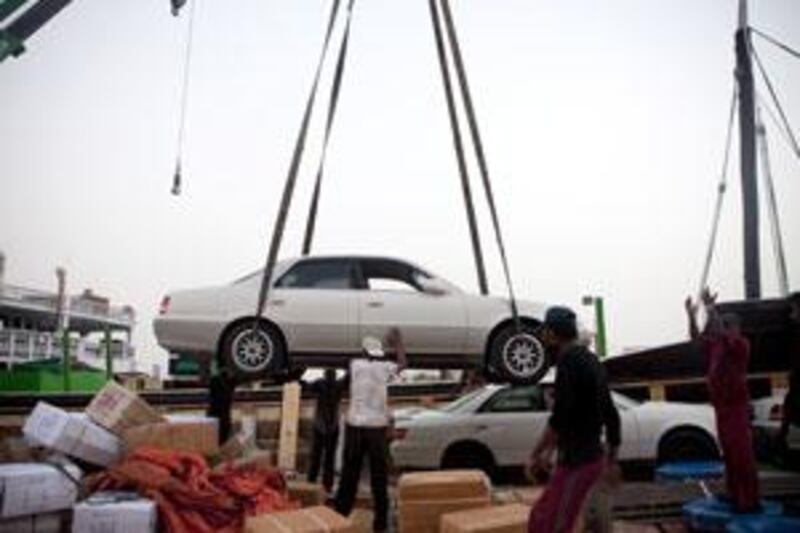ABU DHABI // A week after lifting a trade embargo, Dubai-based dhows are again braving the pirate-infested waters off Somalia. With the release or rescue of eight dhows that were hijacked this month while trading between the UAE and southern Somalia, and with some assurances over security in hand, owners are sailing again to the ports of Mogadishu and Kismayo, said Jagdip Ayachi, the owner of MSV Sea Queen.
The trade embargo, which was imposed after a meeting of dhow owners in Dubai on March 29 and lasted about a week before vessel owners began reloading their ships, was intended to pressure Somali traders to help keep the pirates in check. "The route is still dangerous, but the businessmen in Somalia have assured us that our dhows will be safe," said Mr Ayachi, a Dubai resident. "We feel it will be better than before."
One of Mr Ayachi's other dhows, MSV Narsan, left Dubai for Mogadishu on Sunday. "There's no other option," Mr Ayachi said. "Now everywhere there's recession, and it's a game of survival; if we want to survive we have to make trade." The trading ban has significantly driven up prices in the troubled East African country, putting pressure on the pirates to stop targeting the small cargo vessels. "It's not like they are outside - they are living there too," Mr Ayachi said.
"If the food prices go up, they feel it too, if their mothers and children can't find food they will tell them. People are very angry. They can't understand why they are attacking the dhows that are feeding our people." According to the Food Security and Nutrition Analysis Unit (FSNAU), a UN food security watchdog for Somalia, the country relies on commercial imports for more than 50 per cent of its food.
The trade ban created shortages of basic goods such as rice, flour and sugar. The dhows rely heavily on trade with Somalia, as business on other trade routes such as Iran and India is monopolised by larger cargo vessels, said Abdi Gulvad, who represents Somali importers in Dubai, while people in Somalia heavily depend on the dhows for their cargoes of food, electronics, cars and clothing. "This type of transport is very important for Somalia, because the big cargo ships don't sail there," said Mr Gulvad.
Returning to business, however, means defying the Indian navy, which has issued a circular banning the small boats, all of which are registered in India, from sailing in Yemeni and Somali waters. The Indian navy's ban was introduced after dhow owners decided to stop trading for security reasons. "We are fighting with the Indian government to lift this ban; we want them to provide security, but instead of that they just banned the dhows," Mr Ayachi said.
Even though the boats have gradually resumed sailing over the past week, it will still be another week before they start reaching Somali ports, according to the FSNAU. Pushed into ever deeper waters, Somali pirates hijack the dhows not for their cargo, but to use them as "mother ships" to launch attacks on larger freighters and tankers. MSV Faize Osmani and MSV Safina al Bayatiri, two of the hijacked dhows, were both released by naval forces last week after pirates used them in failed attempts to seize larger vessels.
@Email:lmorris@thenational.ae






